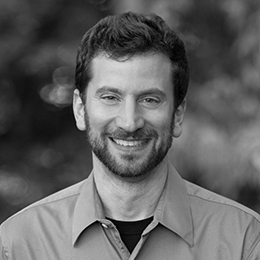Why The Glass-Steagall Myth Persists
The growth of government intervention over the last century was built on the back of a handful of myths. A generation ago, the dominant myth was that free markets had caused the Great Depression, a falsehood ultimately debunked by economists like Milton Friedman. Today, the key myth is that financial deregulation caused the 2008 financial crisis.
What deregulation? There aren’t many possibilities. Despite what we hear, regulation of the financial industry substantially increased over the last thirty years. Government spending on financial regulations, to take one measure, ballooned from $725 million in 1980 to $2.07 billion in 2007 (in 2000 dollars). Anyone looking to blame deregulation for the crisis faces slim pickings.
By far, the single most cited example of this financial “deregulation” is the Gramm-Leach-Bliley Act (GLB), which partially repealed the Glass-Steagall Act thirteen years ago today. Regulatory evangelists including Nobel Prize economist Joseph Stiglitz and recent senatorial candidate Elizabeth Warren, not to mention the Occupy Wall Street protesters, have named the overthrow of Glass-Steagall as public enemy number one.
Stiglitz, for instance, in a lengthy piece for Vanity Fair,could only muster two examples of the deregulation he thinks bears primary responsibility for the crisis: the repeal of Glass-Steagall and the SEC’s 2004 decision to raise banks’ debt-to-capital ratio from 12:1 to 30:1. The latter, of course was not deregulation, but re-regulation. For the regulatory evangelists, the repeal of Glass-Steagall is all they’ve got — and what they’ve got ain’t much.
Glass-Steagall was enacted in 1933 to create a firewall between commercial and investment banks: commercial banks could not underwrite or deal in securities, and investment banks could not accept deposits. The Act also restricted commercial banks from being affiliated with any company that underwrote or dealt in securities.
But by the 1990s, the affiliation provision was widely viewed as unnecessary and even harmful to financial institutions. In 1999, President Clinton signed GLB into law. Although it left the bulk of Glass-Steagall in place, it ended the affiliation restrictions, freeing up holding companies to own both commercial and investment banks.
There is zero evidence this change unleashed the financial crisis. If you tally the institutions that ran into severe problems in 2008–09, the list includes Bear Stearns, Lehman Brothers, Merrill Lynch, AIG, and Fannie Mae and Freddie Mac, none of which would have come under Glass-Steagall’s restrictions. Even President Obama has recently acknowledged that “there is not evidence that having Glass-Steagall in place would somehow change the dynamic.”
As for the FDIC-insured commercial banks that ran into trouble, the record is also clear: what got them into trouble were not activities restricted by Glass-Steagall. Their problems arose from investments in residential mortgages and residential mortgage-backed securities — investments they had always been free to engage in.
GLB didn’t cause the financial crisis — and, when push comes to shove, the regulatory evangelists must admit as much. Stiglitz, in the same Vanity Fair article, concedes that Glass-Steagall did nothing to “directly” cause the crisis. Warren, meanwhile, confessed to New York Times reporter Andrew Ross Sorkin that Glass-Steagall would probably not have stopped the financial crisis, but that she was pushing to reinstate it because, in Sorkin’s words, “it is an easy issue for the public to understand and ‘you can build public attention behind.’”
The reason deregulation is blamed for the crisis is not because there’s proof that GLB was responsible. It’s because people like Stiglitz and Warren have an ideologically based suspicion of markets and the self-interest they unleash.
You can think of it as the “greed” explanation: bankers and financiers are not selfless “public servants,” but “greedy” profit-seekers out for themselves. Unless carefully controlled and limited by government regulators, the story goes, this “greed” is inevitably a destructive force that will foster short-range and often predatory decisions.
Is it any wonder that those who held this view did not feel the need to investigate what led to the financial crisis, but “just knew” the answer had to be a lack of government control? “Wall Street has betrayed us,” John McCain declared just one day after Lehman’s collapse. “This is a result of excess and greed and corruption. . . . And we got [sic] to fix it and we’ve got to update our regulatory system.”
If one understood that the pursuit of profit in a free market does not favor a short-term, cut-every-corner mentality, one’s approach would be very different. One would consider real the possibility that government interference with market forces led to the irrationality and value-destruction of the financial crisis. Indeed, that’s precisely what a growing body of literature suggests.
The definitive history of the financial crisis remains to be written. But one thing is for sure: it shouldn’t be written by those who have a quasi-religious conviction that the freedom to pursue profits is the cause of all the world’s problems, and that government regulation is the unfailing elixir.




![President Obama Duels With Ayn Rand Over What Makes America Great [Forbes.com]](https://ari.aynrand.org/wp-content/uploads/2019/08/obama_duels_570.jpg)




